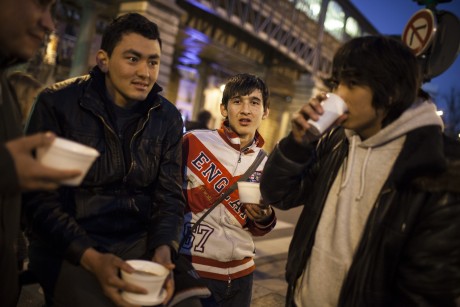


One World Festival Awards Announced

The winners of this year’s One World Festival in Prague have been announced. A total of seven prizes were awarded by juries in the categories of International Competition, The Right to Know, and Czech Competition. New this year is the Regional Jury, made up of three representatives of the cities and towns where the regional One World Festival takes place. Representatives of secondary school students then chose the recipient of the Student Jury Award. Audience members voted after film screenings for the documentary that received the Avast Foundation Audience Award.
One World in Prague screened 117 documentary films in 14 thematic categories. Over 200 filmmakers and protagonists, human rights activists and film festival organizers accepted invitations to attend the festival. In addition to traditional competitions and thematic categories, One World presented twelve virtual reality projects. A new category this year was Short and Concise, in which the festival returned to short documentaries. Two categories appeared in the program aimed at searching for and defining one’s own identity, whether at the personal or the societal level – reflecting the theme of this year’s festival: “Safe Proximity”.
During the festival´s ten days 28 488 viewers attended afternoon and evening
screenings. School screenings were seen by 13 326 students and their teachers. One World in Prague ends on Sunday, March 17 with screenings of the winning films before moving on to 35 other cities and towns throughout the Czech Republic.
The International Competition jury awarded prizes for Best Film and Best Director. They chose from twelve films representing new ways of depicting human rights in documentary film.
Sitting down together on the International Competition jury were Aida Holly-Nambi of Uganda, the art and culture director of None on Record, an organization that works in digital media with African LGBT communities; Syrian director and screenwriter Talal Derki, whose documentary Sons and Fathers was nominated this year for an Oscar; and Will Tizard, a documentary filmmaker and journalist originally from the USA now living in the Czech Republic who is currently a correspondent for Variety magazine.
The prize for the best documentary film was awarded to Heart of Stone directors Claire Billet and Olivier Jobard (France | 2019 | 89 min.). PHOTO. This film about the search for self-identity follows the story of Afghan refugee Quorbán, who was granted asylum in France after eight years, but certainly under less-than-ideal conditions. At the same time, misunderstandings deepen with the rest of the family that remained in Afghanistan. “The flow, pacing and structure of the film builds layers of understanding over time in a way that leaves the audience engrossed from start to finish. The filmmakers had high ambitions and accomplished these in this profound portrait of a journey from boyhood to manhood under heart-aching circumstances,” stated the jury.
The protagonist Quorbán appeared personally at the awards ceremony to receive the award.
The award for best director was given to Mads Brügger, the creator of the documentary Cold Case Hammarskjöld (Denmark, Norway, Sweden, Belgium | 2019 | 128 min.). In his documentary, Brügger follows the story of the tragic death of former UN Secretary-General Dag Hammarskjöld, which shook the international community in the 1960s and remains shrouded in multiple conspiracy theories. The jury characterized the film as “a convoluted, complicated film that reveals the size of the director’s ambitions and the unconventional, self-deprecating humor with which he deals with the impacts of a crime that haunt is to this day.”
The Special Jury Award goes to Carl Javér, whose dramatic experiment Reconstructing Utøya (Sweden, Norway, Denmark | 2018 | 98 min.) attempts to convey the experience of the attack on the Norwegian summer camp in 2011.
“This film vastly transcends its premise and using the example of those who survived the worst terrorist attack in the history of Norway, which claimed 77 young lives, it shows with brutal honesty how people cope with the unimaginable horrors…It is a shocking and surprising insight into memory, grief and how these young survivors make sense of the incomprehensible,” reads the jury statement.